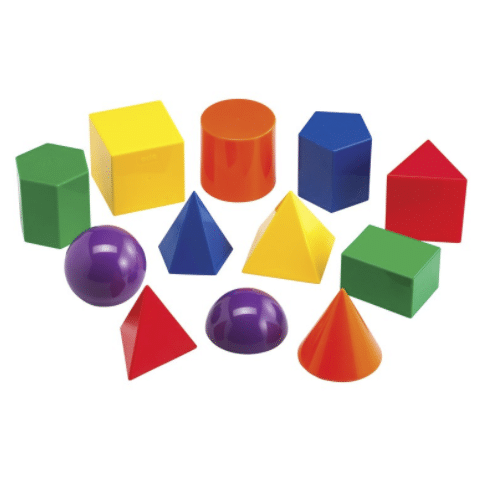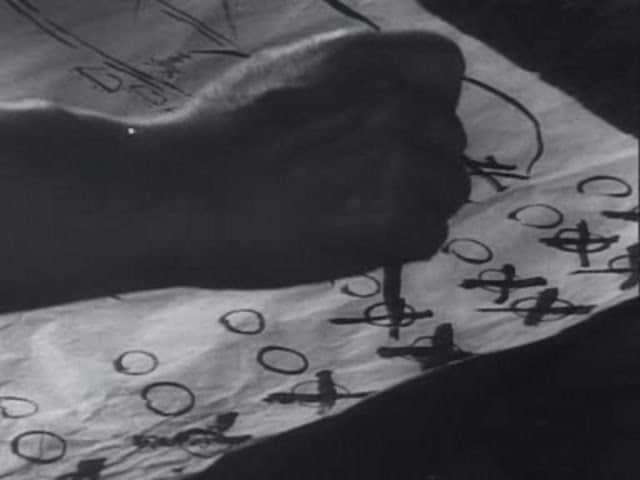Rediscovering Ancient Advantages
Philosophy has the power to help us explore issues more fundamental to our professional goals than we may have realized. This is the case regardless of whether one’s role is client or an asset provider. So how can we unlock any unbeknownst advantages of philosophical thinking, especially for the strategy known as systems integration?
Wait a moment – what exactly do we mean by Philosophy? Feeling apprehensive toward this ancient Greek word is understandable. Over generations, most people have become estranged from the original art of pure thinking. So, let’s take the first step to reacquaint with it now.
A Step Back, Yet Many Forward
Ancient Philosophy itself is an historical and cultural enigma. Although it was once the very inception and then the cornerstone of “academics” (the first and primary subject, in fact), this kind of thinking eventually morphed into our specialized physical sciences.
The essence of thinking itself is simply questioning – or wondering, with a desire for more understanding.
Early Natural Philosophy formed our entire heritage of higher education and Science writ large, yet this venerable origin itself has become somewhat invisible. Today Philosophy appears to be just one disciple among the countless “-logies” that it nevertheless had made possible on university campuses.
Now Philosophy is being remixed and rediscovered in a fresh light by younger generations, notably because of new media. But for the purposes of aiding cutting-edge creative work, we will have to re-encounter Philosophy, since it does carry cultural baggage. That is explained by its varied roles in societies over the past couple millennia.
The simultaneous remediation and rekindled interest in philosophical experiences should lead to promoting Philosophy for new functions in our work, and in our lives. Philosophy, after all, is most valuable during difficult and strange times.
The Basic Strategy of Integration
For our purposes as professionals working with three basic kinds of contemporary knowledge and effort (creative, technical, operational), a working definition for a philosophical approach to them could be simply strategy. It would be strategic to ask questions such as: What are we doing right now? Why are we doing this? How is the best way? – but, before starting to do anything.
Although obviously we all use our own basic strategic circuit during creative brainstorming, Philosophy can help us expand this for better long-term results.
But, hang on– what is strategy? Basically, says Philosophy, it is “teleological,” or thinking with a goal. Professional strategy also can encompass best practices and efficiency-mindedness. The issue then becomes about what qualifies as a viable, important goal, and, how we come to know that.
Arguably the finest philosophical uber-strategy is to reject the unnecessary. In positive terms, this universal tenet suggests that authentic goals always and only exist on behalf of what is actually necessary. Just comprehending necessity itself is a skill strengthened by philosophical experiences.
In the most practical senses, simplicity offers the highest degrees of serviceability, portability, executability, and flexibility to adjust creative, technical, and operational assets.

Yet let’s remember that the ultimate comprehensibility of simplicity itself derives from our cultural heritage of principled, philosophical insight about key concepts including what is necessary and simple, let alone about our technologies. It’s high time we reclaim that rich, intellectual heritage.
The Ultimate Ace-in-hand
Philosophy teaches us that we should get into the habit of exploring strategic questions not only when navigating granular problem-solving, but also in the most general sense: What is our overall goal? Where can a creative strategy lead us (even beyond our work, in life itself)?
A philosopher might respond: always, we naturally aim for quality of life – which is a statement that should entail seeking more probing definitions (for ideas of “quality,” the Good, the purpose of life, and so on). Professionals reaching heights of skill and creativity, and taking pride in their work and service to others, arguably does fall squarely into the category of quality of life.
In the course of focusing the experience of questioning (that is, thinking), we must peel back the meanings of common words and notions, and whole dogmas, to their philosophical essences, as we have been doing here. Consciously including this in our work may not seem productive short-term, compared to deploying our technical skillset.
Yet leveraging the original “life hack” of philosophical thinking is critical to success in many spheres, whether one is conscious of it or not.
In Concrete Terms
What are “philosophical experiences”? Rather than a stiff, cerebral, formal, inaccessible, privileged, academic affair, we can think of Philosophy in action as simply the sounds of mutually inquisitive dialog between human beings. This dialog itself is the proverbial meeting of minds, mediated by voices and language(s). Wanting to understand another’s thinking in order to expand one’s own understanding is the essence of such dialog.
Even the intrinsic dialog that exists within many texts – in articles like this one – essentially qualifies as conversation between the minds of writers and readers. When texts are written consciously in that dialogic, “personable,” generous, and conversational style, then we can say that they are remarkably philosophical to that extent.
It is in that simpler, interpersonal mode when the discipline of Philosophy can be most accessible and welcoming to the uninitiated or lay public. Given the ubiquity of these dialogs that already comprise our professional and personal lives, it is rather tempting to start thinking of philosophizing as much more present and instructive than we had realized.
The Art and Way of Strategy
Let’s start considering how dialogic processes and communication must be utilized in the course of conceiving strategic or teleological ideas, and then in our courses of action.
Whenever I think about the practice of creative strategy, an associated image comes to mind from a scene in the old film The Seven Samurai, by Akira Kurosawa.
The image is of the leader of this famous group of ronin (or freelance) warriors, squatting in his command center where he receives intelligence messages relayed from his colleagues around the village – intel which he takes his time to register neatly on a painting.

The painting represents their knowledge of an enemy gang of brigands, including its location and how many fighters remain (circles). The samurai defenders had spent months redesigning the vulnerable farming village, baking-in their defence strategy.
We can think of martial arts as allegorical, since some of those strategies offer teachings and valuable techniques for creative professionals, too. Actually, philosophical thinking is shared by both the martial arts and creative arts, not to mention the sciences – again, our culture just has forgotten this cultural common denominator.
Philosophy in Action
What are concrete, situational, real-life examples of philosophical problem-solving? Well, let’s draw from our example above. The samurais integrated into one holistic effort their:
- martial arts (including “creative” in the form of their painted strategy map)
- technologies (such as village fortification, let alone swords)
- operational coordination (battle stations and communications)
These three integrated systems can map onto the basic phenomenological aspects (or deep psychology) of executing any challenging task. There always may be a creative, a technical, and an operational aspect of getting something done.
The presence of that deep, universal blend of basic forces should give us more confidence in our macro-level, professional strategy of re-integrating those functions that previously were alienated (creative, technical, operational) back into one cooperative knowledge community.
It makes sense to refer to this trilogy of Creative, Technological, and Operational workflows all as integral aspects of creativity.
We could relate the role that good design (of all manner of objects, spaces, or even policies) has for quality of life with the very design of our creative work, in and of itself.
Salient Philosophical Strategies
Essentially our philosophical curiosity so far has been about the overall integrational aspect of treating the three kinds of problem-solving (creative, technological, operational) within one holistic workflow. Philosophy generally seeks the universal through the essences of phenomena, where “universal” is our ultimate concept of integration, or, absolute integrity.
Hence we are on solid ground philosophically to adopt a systems-integration strategy. Before we summarize each of those “systems” below, here is a review and restatement of the philosophical strategies we have suggested that could benefit them:
- not rushing initial phases; think and rethink before action
- defamiliarizing what we think we know
- scope and domain awareness
- compatible conceptual models among team members
- questioning the questions
- using precise, simple language
Creative
The purely “creative” track, including most notably design, is at once the most holistic and (therefore) the most mysterious of the three – certainly so from the perspective of non-“creative” people, or at least anyone who has to deal with artists and designers!
Joking aside, what we mean here is that profiling this kind of professionalism, quite simply, is relatively straightforward because we shouldn’t try to say too much about it. Instead, we can use a standard comparison to describe the responsibility to produce “creative.” The basic question is: Why is systems integration attractive or promising for creative work?
Benefits: Sometimes the worst problem for designers and image-makers is receiving insufficient indications from technical team-members, which would help clarify the creative limitations and constraints. Systems integration brings all tracks into the loop and into communication, so that creative folks conserve more energy to do their thing.
Drawbacks: Artistic types may feel too constrained by being “integrated” with other kinds of professional efforts, which could be interpreted as a new problem or obstacle. Previously, the creative teams could retreat into a mysterious bubble and then return with ingenious solutions – yet now with integrated workflows, that inter-discipline opacity (sometimes welcome) is lessened.
Greater transparency may taste like a bitter pill for the creative set, however, it is the stronger professional stance overall. (Coders and planners have their own ways of hiding out in their bubbles, to be fair.)
Technological
Many of the mature creative professionals today had witnessed their parents during the initial adoption phase of the first personal computers, starting with Atari, Apple, Commodore, and Microsoft/IBM. As kids we may have been shown how to use them, at least to play early games, or learn how to type.
Younger professionals (so-called Millennials) have not witnessed the cultural-technological shift that the pre-Internet generations experienced, let alone the very shift into a computerized professional paradigm.
We should not miss the opportunity for combining these generational perspectives, with their unique ways of seeing the world – rather than allowing a collision of world-views.
Technology, which is one basis for differentiating these groups, actually provides innumerable ways to bring them together, have them communicate, and then to integrate productively.
The Web of Work
| Worthy of special note: the Internet specifically is making possible an incredible degree of unification and integration in professional services. That simultaneous convergence and new depth produces a complexity that philosophical strategy is well suited to interpret, put into perspective, and even manage. |
The newer, paradigmatic improvements to integrated business systems and assets are not only good for commerce; such improvements offer essential, fundamental benefits to human quality of life, and even global civilization.
Philosophy also has the most precise ways to describe and appreciate those boons since it always has focused upon the very question of defining “quality of life,” and it will remain focused on that during paradigm shifts.
Organizational
Project management in today’s world – with so many more tools for logistics and communications now in play – has itself matured into a multi-disciplinary, multi-mediated practice. It is the hub of a wheel that by now has many, many spokes representing the forms of talent, skill, knowledge, data, and desires that converge in a systems-integration approach.
The synergy of creative, technological, and organizational stake-holding can be experienced, appreciated, and shored up by holistic project management.
Comfortable with Questions
We started out by claiming that “Philosophy has the power to help us explore issues more fundamental to our professional goals than we may have realized.” Has that statement become clearer?
Sometimes the word philosophy is used colloquially to mean how one thinks about something, or to indicate that a person possesses a conscious system for approaching some phenomenon (as in, “her philosophy of motorcycling”). Even in that more casual sense, can you truthfully say that your team has a philosophy for systems integration? Could you describe it right now, simply and quickly? If not, then that alone is the most important takeaway.
In the final analysis, Philosophy indeed does prove itself indispensable, in practice, for Web-savvy professionals who aim to integrate the three main forms of intelligence that feed into their results and solutions.
We can say this confidently because the payoffs from embracing more philosophical experiences include improvements to problem solving, communication, creativity, and strategy – all of which save energy and time. That proof is open to anyone who would only try some of the methods we have covered.
The august tradition of Philosophy resituated within the contemporary toolkits of professionals – especially those of us doing systems integration – is like “core strength” for athletes. We all have our specialized (perhaps over-specialized) skills. But a newfound, philosophical tact combined with philosophical methods form an effective unifying strategy to maximize both the quality of our professional work, and, our overall quality of life.




0 Comments